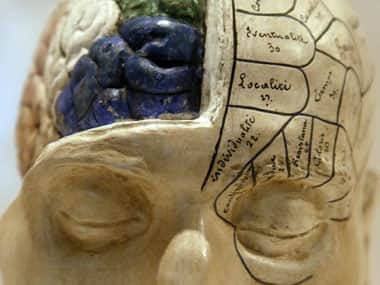People with autism have too many synapses – the connectors by which brain cells send and receive signals – according to a new study that may point to a treatment for the complex disorder. The extra synapses in autistic brains are the result not of overproduction, but of a failure in the normal process of discarding old and degraded cells. Researchers at New York’s University of Columbia were able to re-establish the brain’s “pruning mechanism” in mice genetically modified to simulate autism. To do it, they used a drug called rapamycin to block a protein, mTOR, which in autistic patients goes hyperactive and blocks the brain’s natural ability to cull synapses. The researchers saw a reduction in typical autistic behaviors, such as avoiding contact with others, in the treated mice, according to findings published this week in the US journal “Neuron.” [caption id=“attachment_1678377” align=“alignleft” width=“380”]  Reuters[/caption] “We were able to treat the mice after the disease had appeared,” said Columbia University neurobiologist David Sulzer, lead author of the study. This is crucial because autism does not become apparent at birth but later in childhood, “so you need a treatment that works after diagnosis,” he said. “If we were correct we should be able to have quite effective treatment even after diagnosis,” he told AFP. One in 68 US children is diagnosed on the autism spectrum, according to the most recent government estimates. Newborn brains produce an enormous quantity of synapses as they grow, but later in childhood and adolescence they prune many of these connections to allow the different sections of the brain to develop without being overwhelmed, neurologists said. This study analyzed tissues from the cerebral cortex – which is involved in speech and social behaviors – from 48 cadavers of subjects ranging in age from two to 20 at their deaths. Of the subjects, 26 had been diagnosed with autism, and 22 were not. Early in childhood, both groups had similar numbers of synapses, the study found. However, a 19-year-old without autism had around 41 percent fewer synapses than a young child, while an autistic 19-year-old had far more – their brains had shed only around 16 percent compared with a young child’s. The neurologists noted also that the excess of synapses increased the risk of epilepsy, since there were more electrical signals crossing through the brain. Sulzer and his team also discovered biomarkers and proteins in the brains of children and teenagers with autism that indicated the pruning mechanism was not functioning normally. Sulzer said it might be possible to adapt rapamycin to treat some autistic patients to help lessen the sometimes debilitating symptoms. However, he noted that the drug in its current form, which is in testing as a treatment for Tuberous sclerosis, a rare genetic disorder often associated with autism, is also an immuno-suppressant, and may not be ideal as a long-term treatment, especially for children and teenagers, whose bodies are still developing. AFP
Researchers at New York’s University of Columbia were able to re-establish the brain’s “pruning mechanism” in mice genetically modified to simulate autism
Advertisement
End of Article
Written by FP Archives
see more


)
)
)
)
)
)
)
)
)



